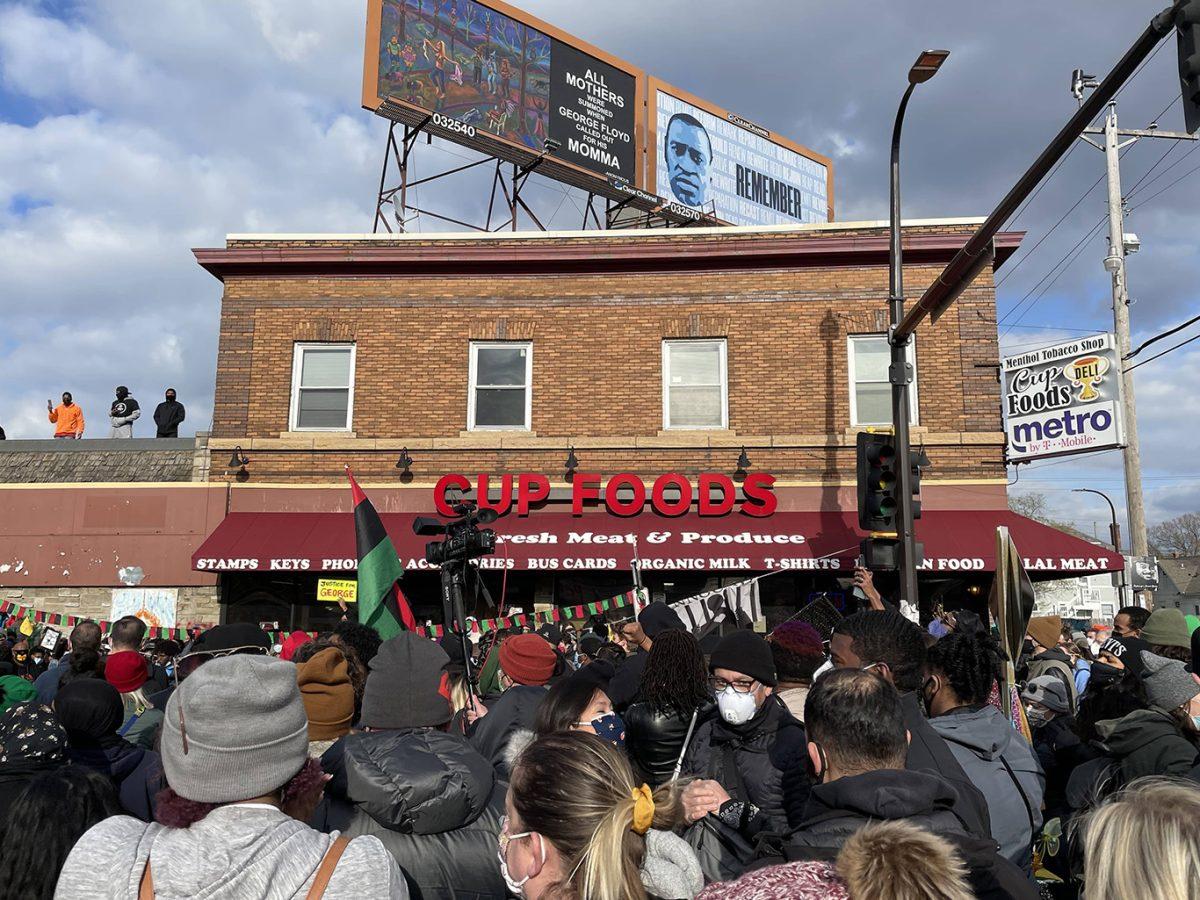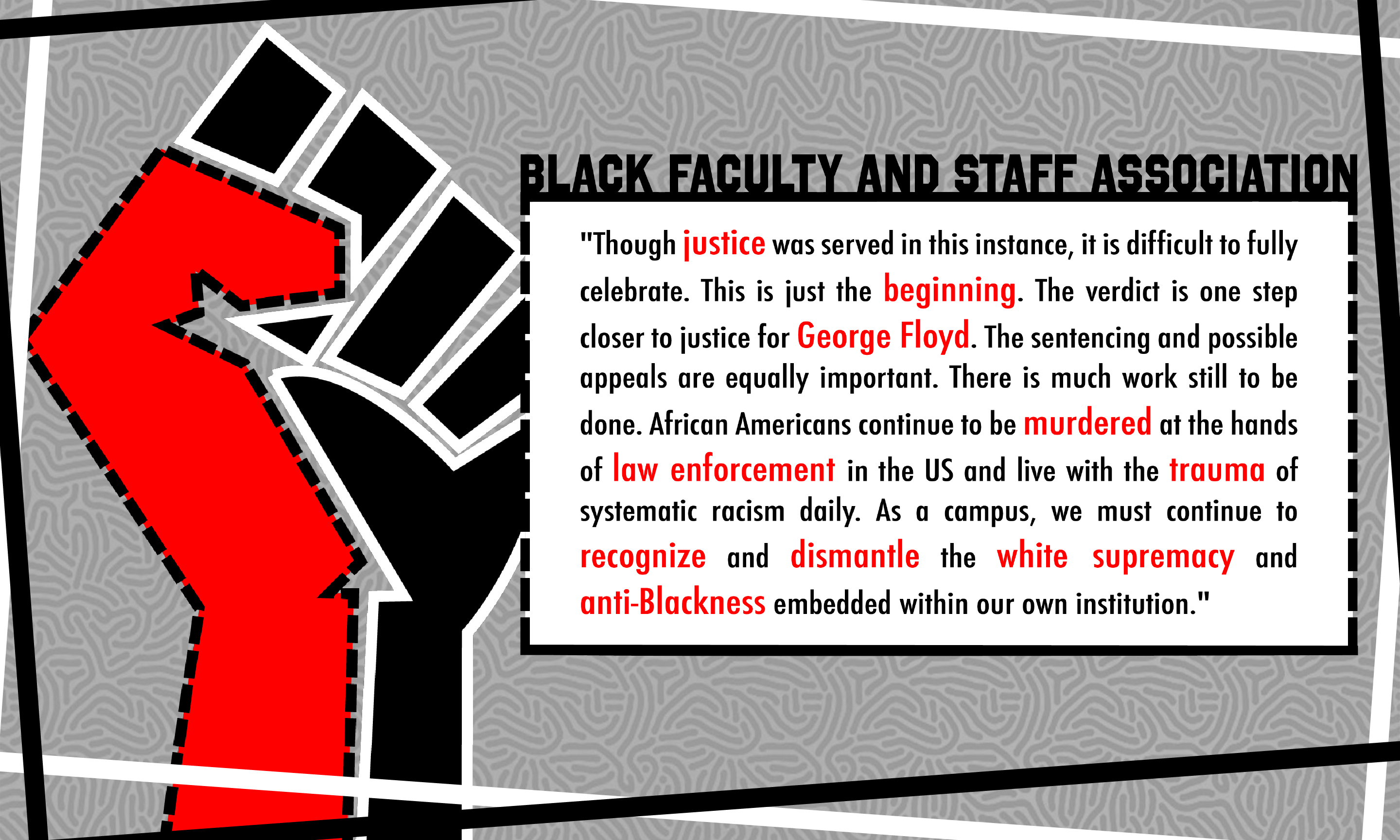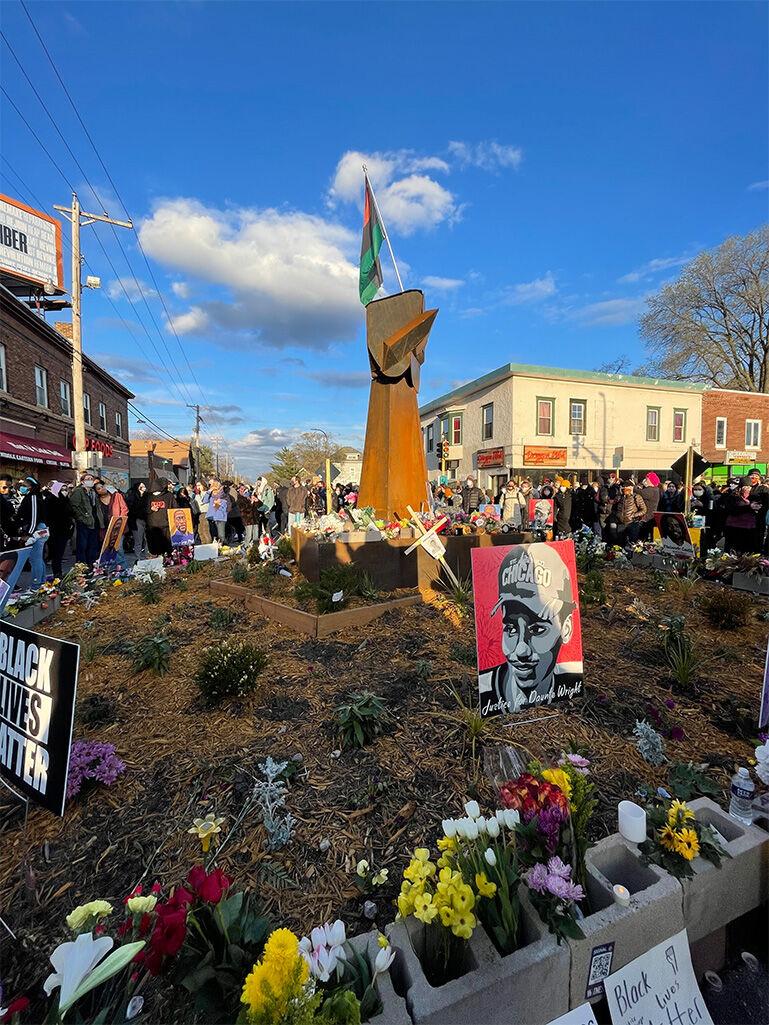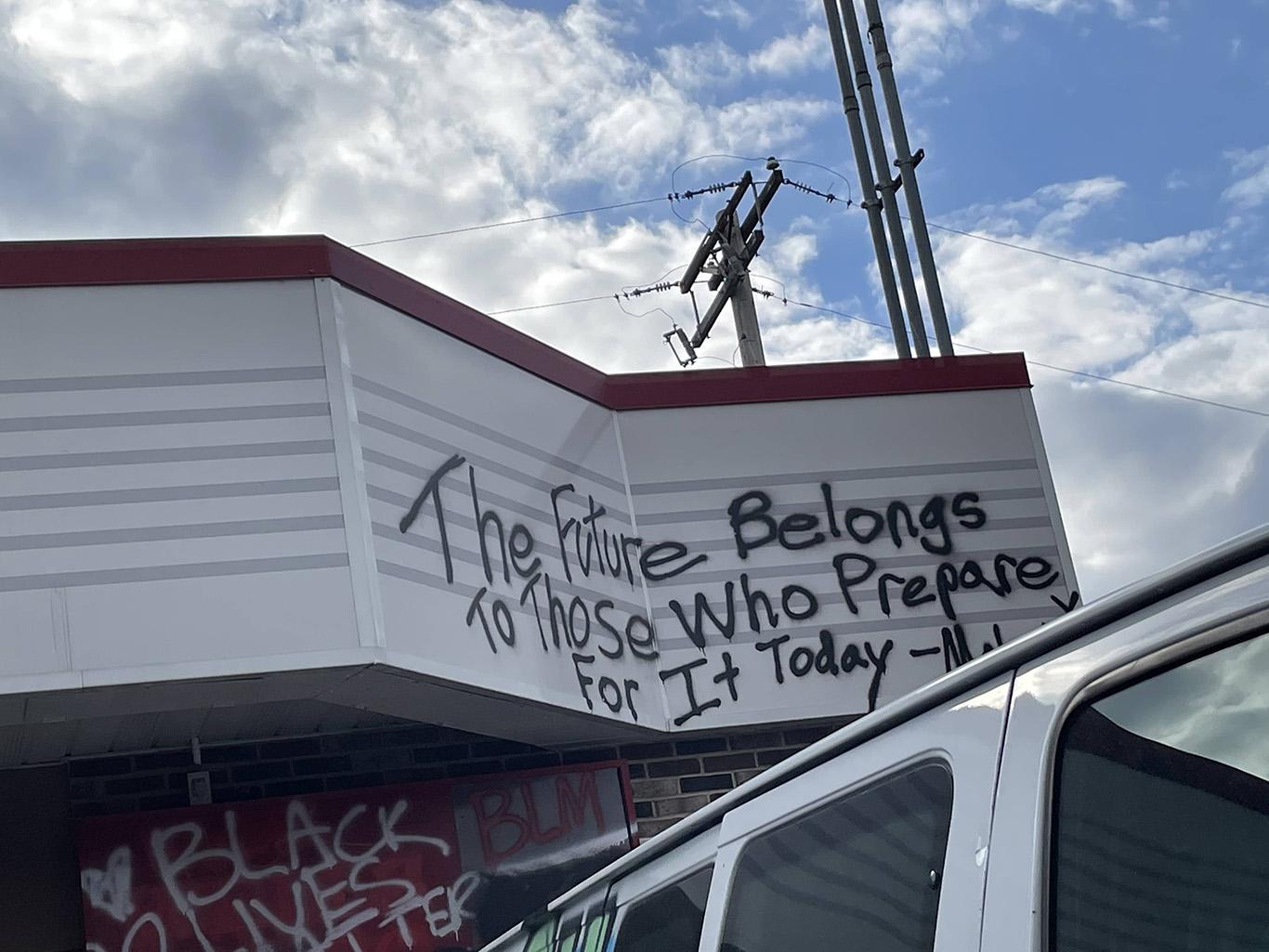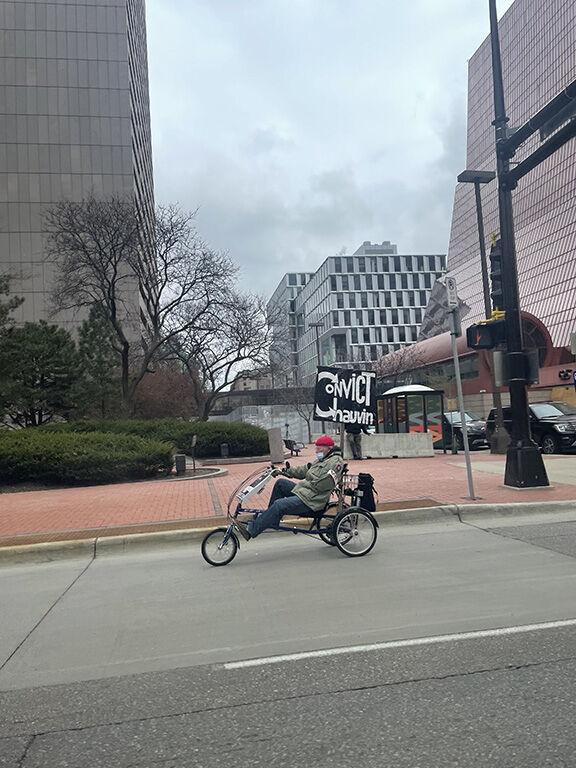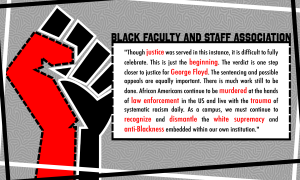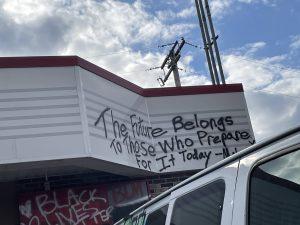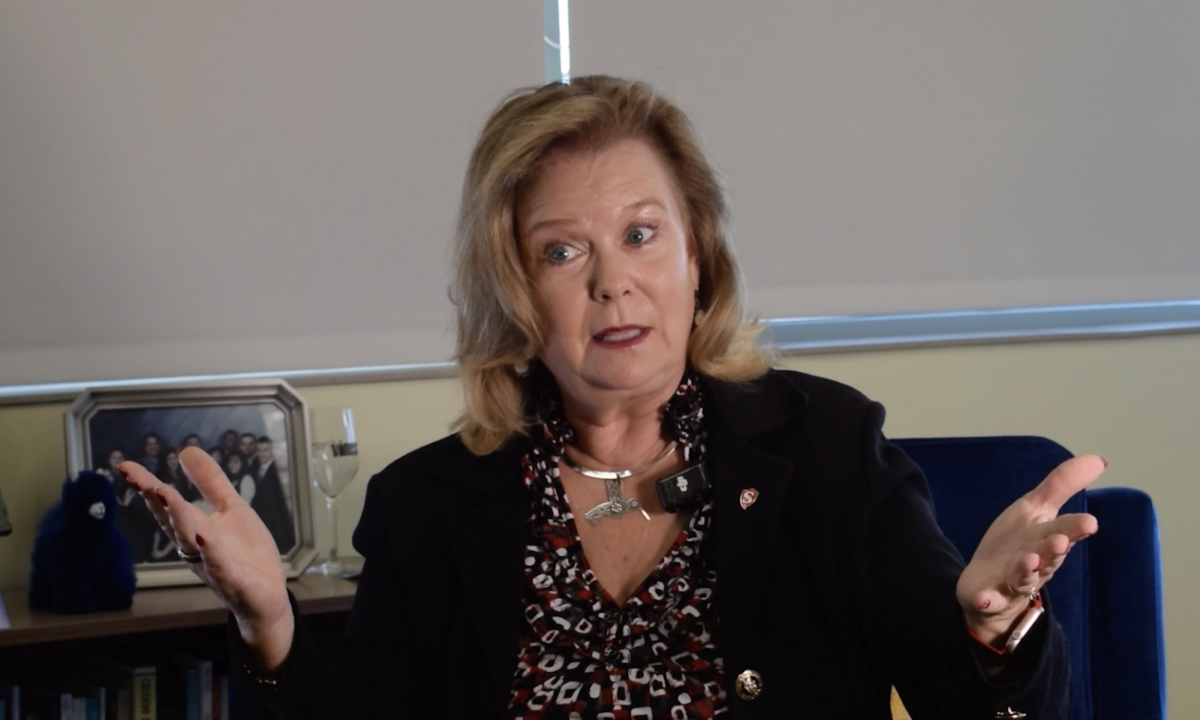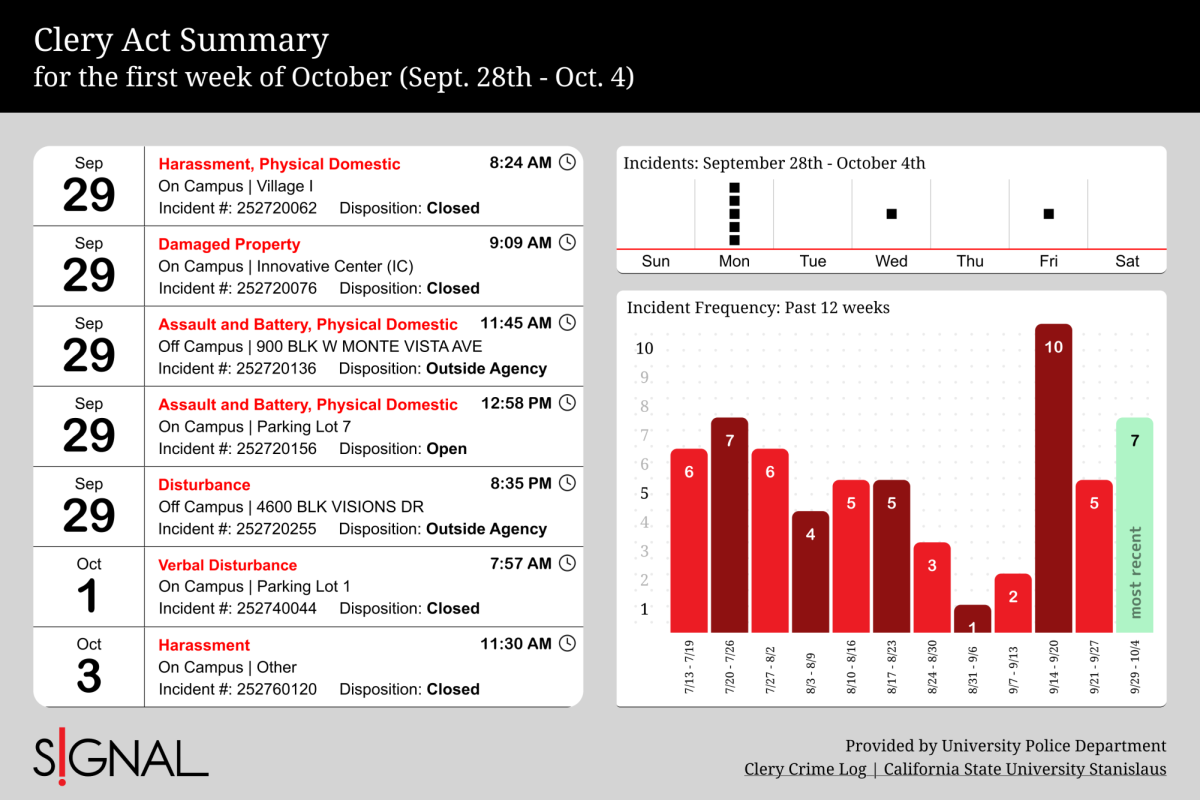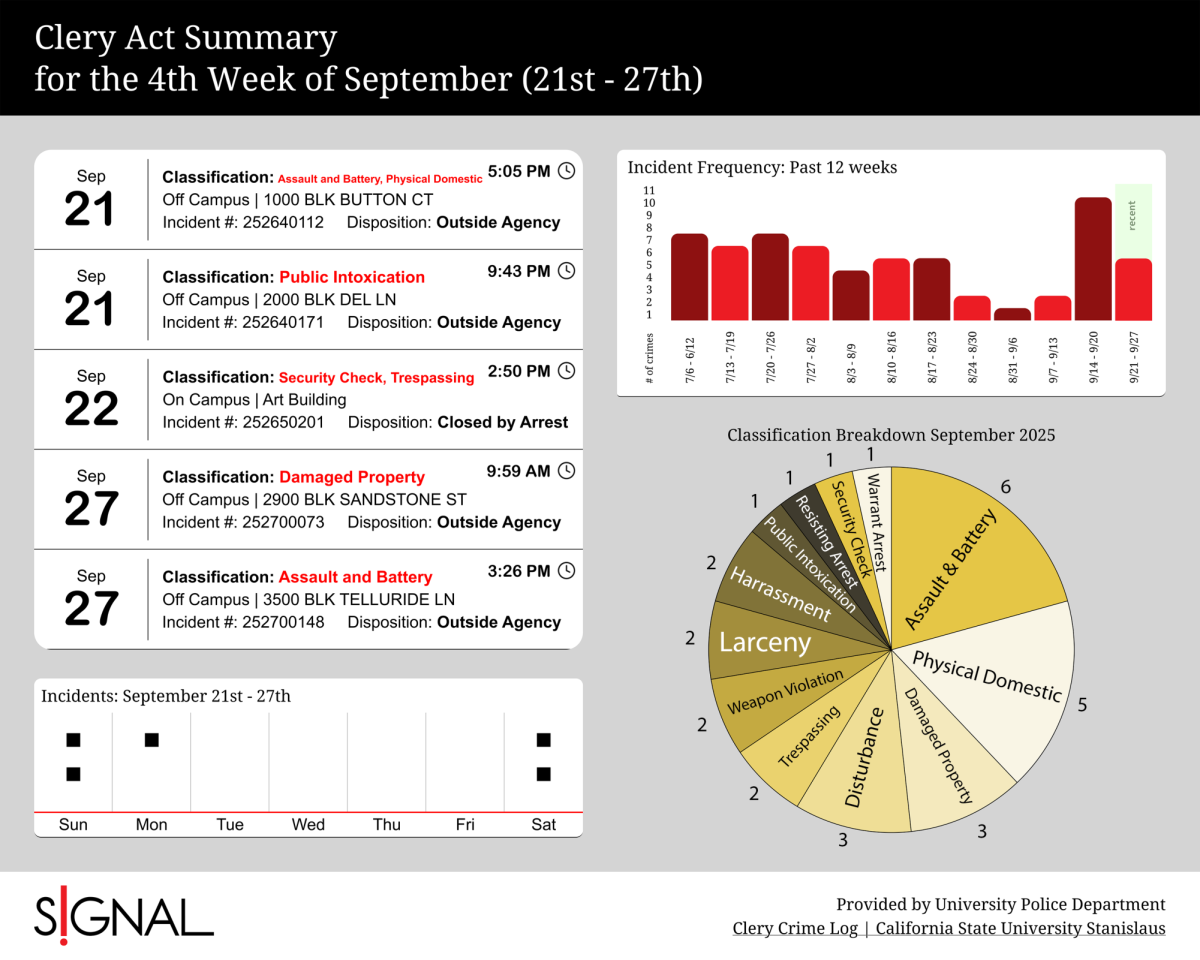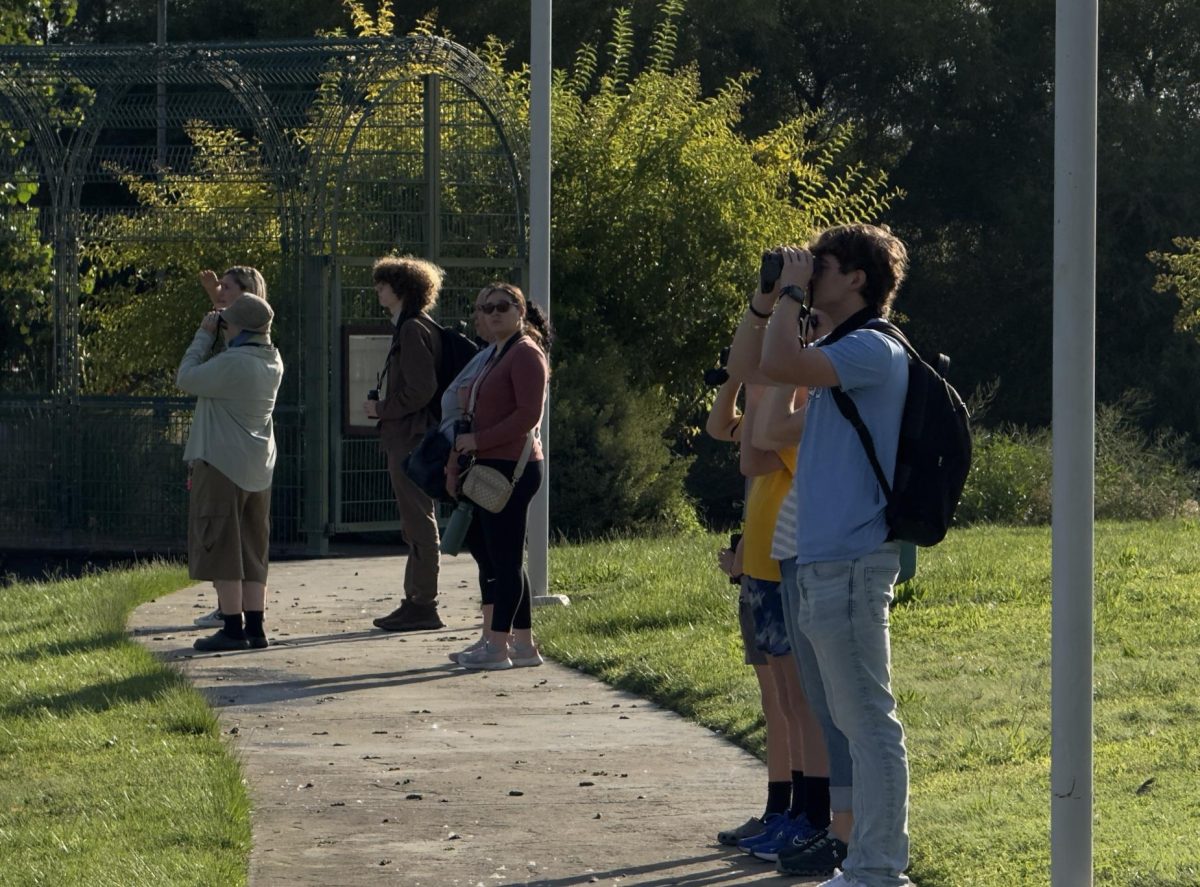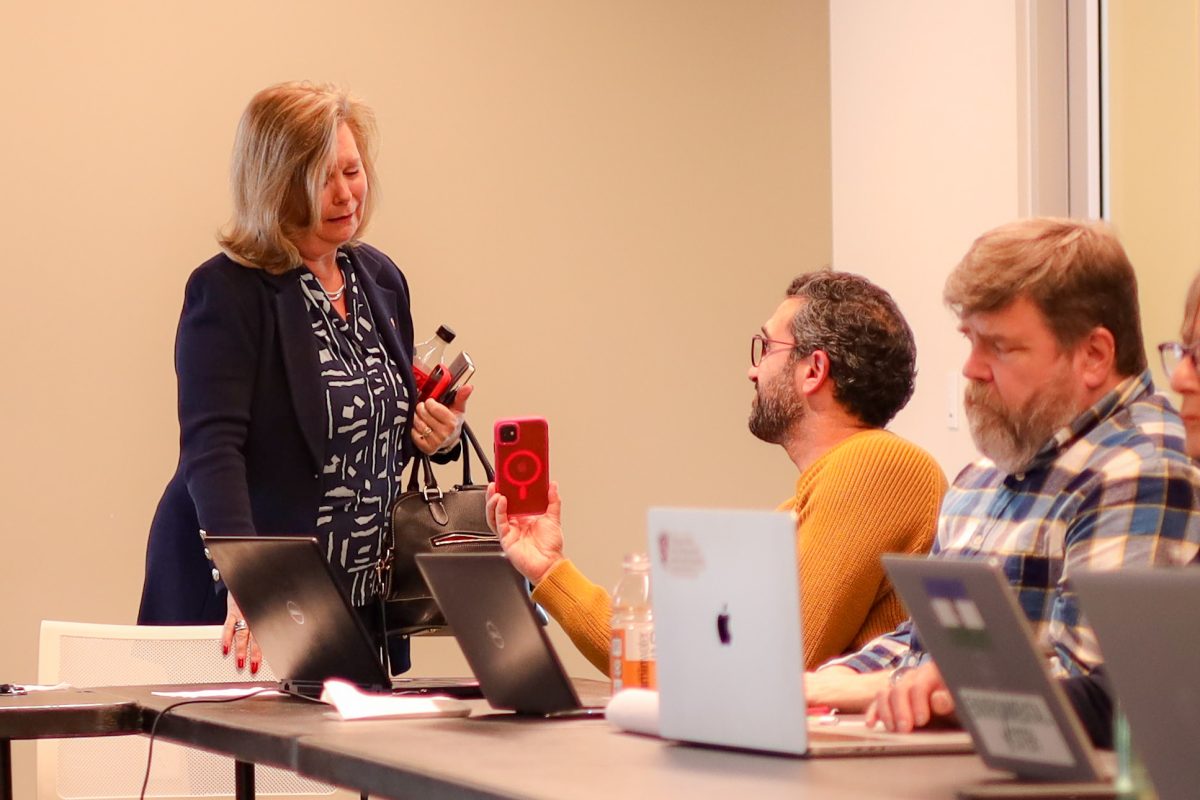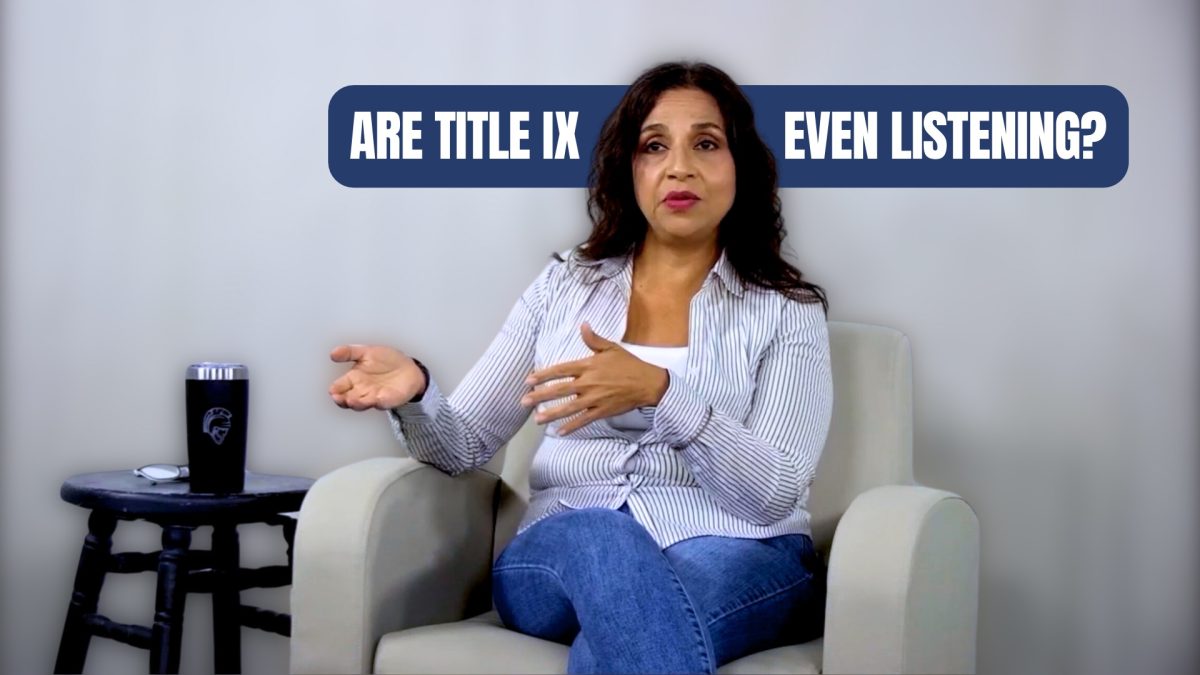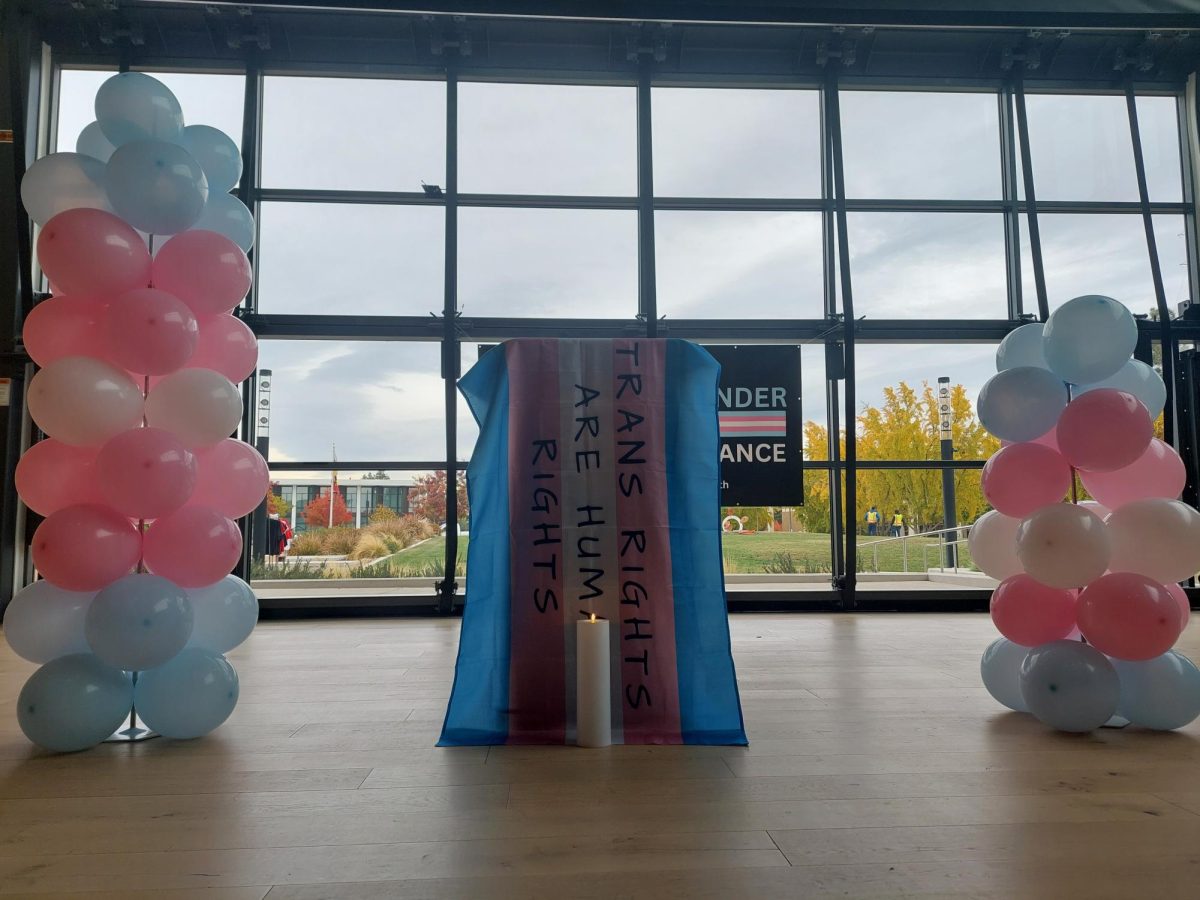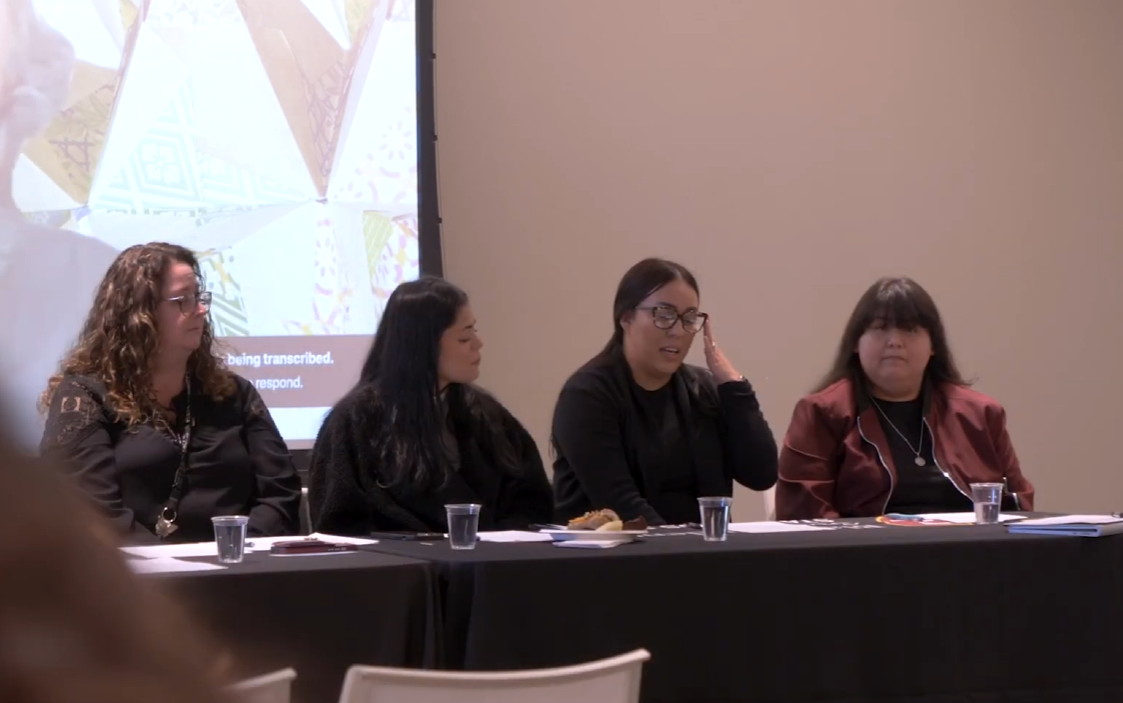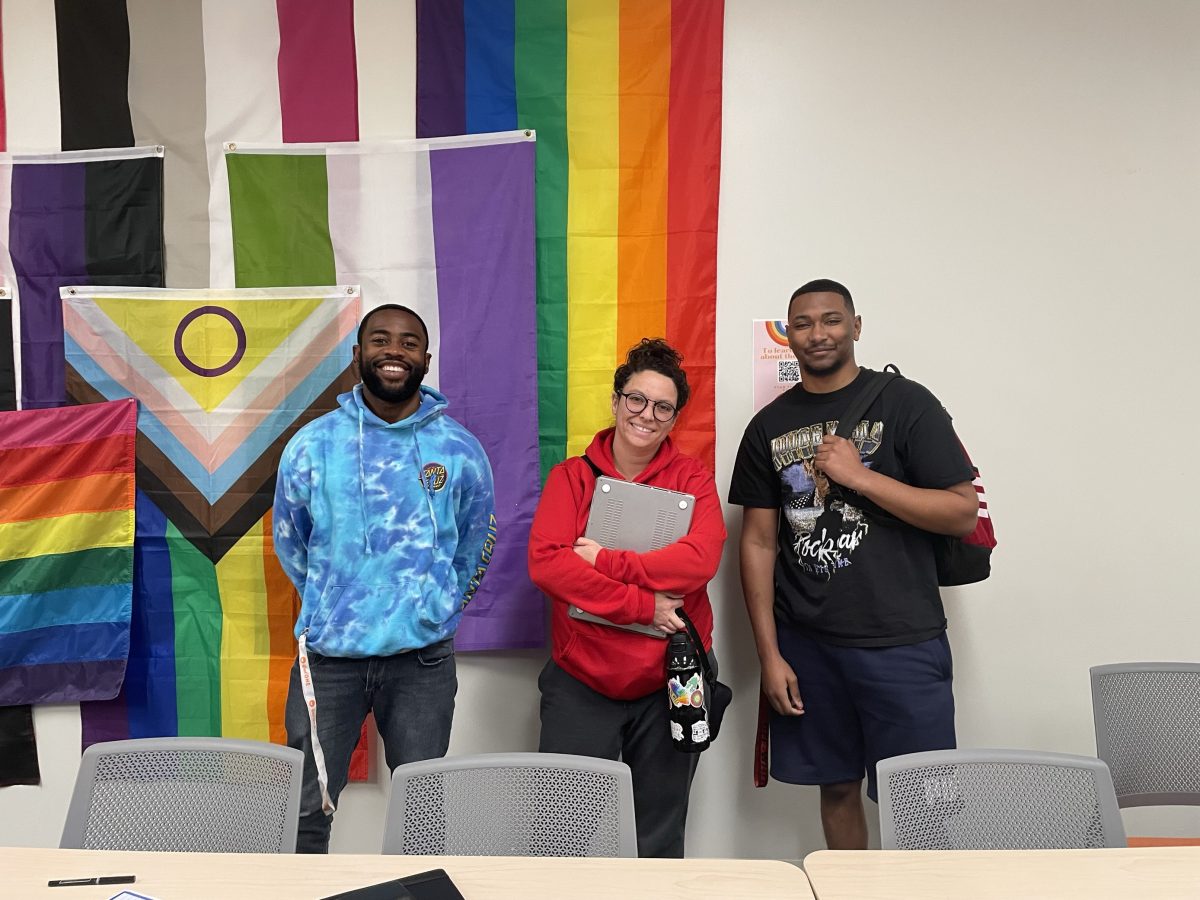As the news of Derek Chauvin’s conviction sinks in, the CSU Stanislaus community has had more time to come to terms with what this verdict means for the continued struggle with police brutality and systemic racism.
On a larger scale, this conviction seems to be looked at as a sign, a sign that people are determined to push forward and that positive change can actually take place.
Members of the Stan State community had different experiences and feelings regarding Chauvin’s conviction.
The Black Faculty and Staff Association shared the following statement with the Signal:
“Though justice was served in this instance, it is difficult to fully celebrate. This is just the beginning. The verdict is one step closer to justice for George Floyd. The sentencing and possible appeals are equally important. There is much work still to be done. African Americans continue to be murdered at the hands of law enforcement in the U.S. and live with the trauma of systematic racism daily. As a campus, we must continue to recognize and dismantle the white supremacy and anti-Blackness embedded within our own institution.”
President Junn also shared a statement with us:
“While sadly, the conviction of Derek Chauvin cannot bring back Mr. Floyd, it does offer a hopeful signal for deeper change and transformation toward continued progress in equity for African Americans and others in our country. At Stan State, we will intensify our commitment to closely examining University policies, processes and infrastructure to improve equity.”
These statements have messages that many people agree with. When speaking to one of the founders of the Turlock Black Lives Matter Movement and current Stan student Jaimee Ellison (senior, Kinesiology), who is currently in Minneapolis, she mentioned specifically that this was “not justice, but accountability, and I think that’s a key term we’re going to have to keep using.”
This is a sentiment echoed by Dr. Aletha M. Harven, a psychology professor on campus, who reiterated the necessity of treating the verdict as accountability. She emphasized that “it’s about wrongful conduct,” and “there still needs to be a real assessment related to the policies and practices.”
Leading up to the conviction, there was a significant amount of concern about the fact that the system often does not allow for this kind of accountability.
Dr. Matt Cover is a professor of biological sciences at Stan, and he expressed his intitial fear that “we would see another not guilty verdict, which is in line with what we’ve seen over and over again whenever it seems like police are on trial for murder.”
Angelina Martin, a Turlock Journal reporter and former Stan State student, shared the same fears. She said, “How crazy was it that it was recorded on video and there was still uncertainty of whether or not the officer would be found guilty.”
To see a conviction occur and all three charges, consisting of third-degree murder, second-degree manslaughter, and second-degree unintentional murder, actually stick was relieving to many.
Down in Minneapolis, Ellison noted that “there’s a lot of Black joy… For the first time, I feel like the community could breathe, you know, take a sigh of relief.” She shared the following images, taken in Minneapolis.
Martin felt the same way as Ellison, stating that hearing the conviction was a nice change from the anger and sadness that people have felt over the past year.
In this relief lies the sense that there is still more work to do for continued change and true justice.
Dr. Harven’s hope is that “the energy so many of us have been putting forward in trying to create change” is maintained.
For Ellison, this “second Civil Rights Movement” is a new breath where “we have accountability. Now we can work towards getting the other three officers held accountable.” To her, we can take this and continue to fight against things like qualified immunity. The fact that Black people are still being killed and taken advantage of by these systems is not something that can be fixed overnight.
Dr. Cover mentioned that “there’s a temptation some people may be thinking, ‘Oh the system worked,’ you know, and I think that’s unfortunate because it stops us from being critical of the larger system and the structures in place.”
This criticism was important to Dr. Harven, who expressed that at Stan State, “when it comes to faculty, when it comes to staff, and when it comes to students, we still need to address our policies and our procedures… We really need to push for people to interrogate their own belief systems when it comes to interacting with Black people and when it comes to interacting with other people.”
For Dr. Erin Hughes, a politics and public administration professor on campus, there was an initial reaction of relief after hearing the verdict. However, like many of her professor colleagues, she also took time to reflect on the cases that did not or have yet to receive the justice that they deserve.
“The prosecution did an amazing job, the evidence was overwhelming, but that’s been true of other cases as well, and so you hope that justice is done in a way but it’s hard, knowing the history of these types of cases, to be too hopeful,” explained Dr. Hughes.
Another thing many people noted is that the pandemic is one reason why Floyd’s murder garnered worldwide outrage.
Dr. Cueponcaxochitl Moreno Sandoval, an ethnic studies professor, stated, “What George Floyd has inspired us to do, as well as all of the other bodies that have been murdered by the police state, is to inspire a movement of change. The pandemic has also forced us to really think inside and outside of the box and to think about moving things in ways that are communal.”
When Moreno Sandoval heard about the conviction, she discussed the matter with a cousin. She felt as if justice had been served a little bit, but that it still was not enough. She said that the conviction should not have been a surprise and that if Chauvin hadn’t been convicted, people shouldn’t have accepted that.
She also stated, “What we need to do is really abolish ICE, abolish the police and defund the police. And that means that we need to build community, so that we eventually don’t have to call the police. And that’s something that’s not going to happen overnight. It’s something that’s going to take seeds.”
Dr. Arya Alami, a kinesiology professor, also felt that the pandemic affected the George Floyd case.
He stated that what happened to George Floyd, being murdered at the hands of a police officer, is not a unique situation. It happened to Breonna Taylor, Ahmaud Arbery, Tamir Rice and many more.
He continued, “This has been happening a lot and the real catalyst has been the fact that a lot of non-BIPOC had nothing else to do and were forced to pay attention.”
Dr. Alami was slightly surprised upon hearing about Chauvin’s conviction. He also immediately thought about how Chauvin’s defense attorneys will likely be filing an appeal.
Because of this, he stated, “In a lot of ways, it’s a big step. In a lot of ways, it’s a really tiny step. There’s still a long way to go.”
Dr. Alami continued by expressing that he feels that radical change needs to happen regarding police officers. He said, “Blanket immunity for police officers has to go out the window.”
Dr. Alami also stated that while the conviction is set, a sentence is not, and he is wary over that. This is because the United State’s history of convicting and sentencing police officers is very short. We’ve only just recently started to see officers getting fired. Giving officers convictions and just sentences is still a work in progress.
Overall, there are many mixed feelings regarding the conviction. While Chauvin has been convicted, he still needs to be sentenced. The three other police officers who participated in the Floyd murder are still up for trial this summer. Lots of work is still left to be done.

